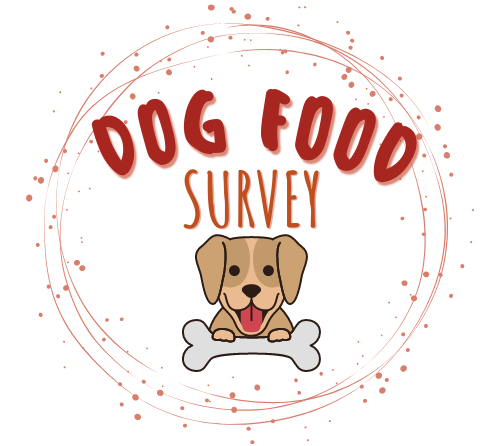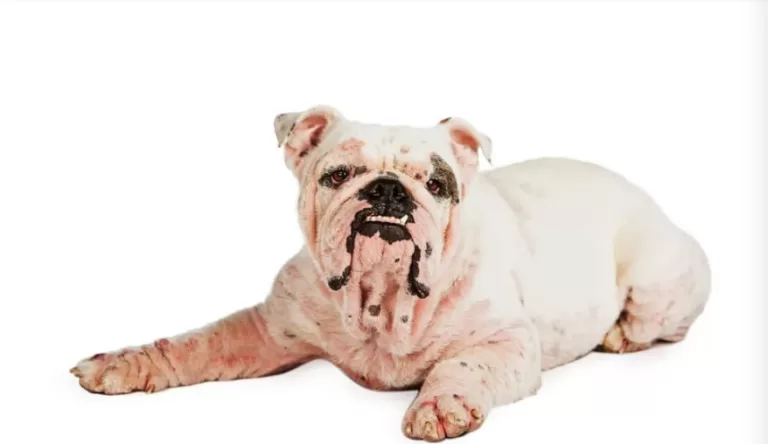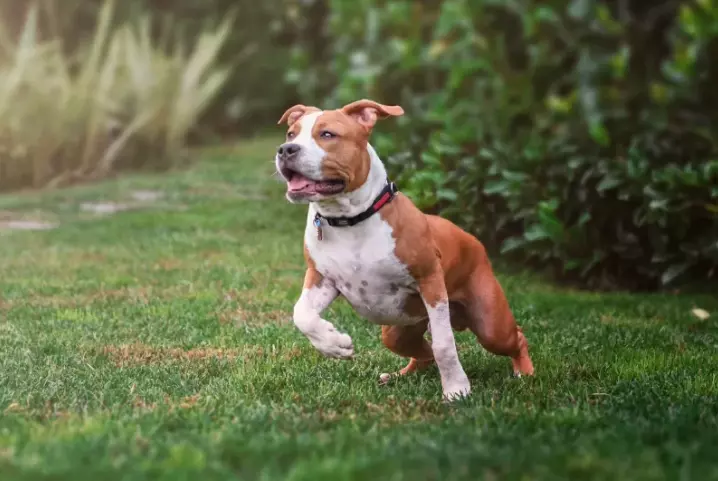Bernese Mountain Dog Food Allergies
Table of Contents
The Bernese mountain dogs are large breed dogs, weighing between 65 to 120 pounds at maturity. They are easily identified by their enormous size and silky multi-colored coats. They are Originally agricultural dogs, but they are now loyal family pets.
The Bernese Mountain dog breed is more prone to food allergies. Food plays a crucial role, especially for larger breeds, to stay healthy and active. A well-balanced and nutritious food is the greatest method to ensure that your pet remains healthy for many years to come and cannot suffer from any allergy problems.
I have compiled some information about Bernese Mountain dog food allergies to understand the signs, causes, symptoms, and treatments so you can easily handle your dog’s condition.
What is a dog food allergy?
An allergen causes an immunological reaction. Food allergens include plant, animal, and insect proteins. Inflammation of the immune system can harm the body of the Bernese Mountain Dog. Intermittent allergens can sensitize and induce an immune system overreaction over years or months, or even years.
It usually defends the animal from infection, but the immune system reaction might be lethal.
Real food allergies are low compared to food sensitivities. Food allergies trigger an immune reaction.
Dermatologic symptoms of an allergic response include hives, swelling, and itching of the face. Gastrointestinal symptoms such as severe vomiting and diarrhea may accompany these. These symptoms appear quickly, but not as quickly as an anaphylactic response.
Causes of dog food Allergy
A variety of factors may cause allergies to pet food. Any food and any component in the food, including colors and preservatives, may cause allergies in dogs. The following are the most frequent components in dog food that cause allergies in pets: Veterinary Specialties state following food ingredients cause pet food allergies.
- Beef
- Lamb
- Soy
- Wheat
- Corn
- Egg
- Rice
Some of the most frequent components in dog meals are also included in the list of allergies. It does not mean that foods are characterized by the ability to cause allergies or to be classified as “good” or “bad.” The real problem is that the immune system of the dog is over-sensitive to the specific food ingredient, and dogs acquire an allergy to a certain meal.
Symptoms of food Allergy
A wide range of symptoms may signify that your pet has a food allergy. Some of the most frequent symptoms of a food allergy in a pet include:
- Rashes on the skin
- Hives
- Biting paws
- Excessive licking
- Eyes that are itchy and watery
- Ears that are itchy, inflamed, and infected
- Sneezing
- gastrointestinal problems
- Vomiting
- Diarrhea

How did I Diagnose My Bernese Mountain dog as having a food allergy?
Certain tests help identify allergies in dogs; recent studies reveal that these tests do not consistently identify dietary allergens that produce diseases in dogs. A specific low-ingredient diet is the only accurate method to identify a dog food allergy.
This particular diet is a short-term diagnostic tool that helps you to determine if your dog has a food sensitivity. It entails giving your pet a whole novel type of food. The immune system cannot be allergic to proteins in food because it has never experienced them.
For four weeks, you must restrict EVERYTHING your dog eats. Foraging outdoors is prohibited, and flavorful medication may need to be changed. This is the only reliable method to diagnose a pet food allergy.
A restricted diet used to detect pet food allergies is only limited. Once we have determined whether your pet has a food allergy, we may gradually reintroduce the dietary needs of the dogs.
Dietary needs of the Bernese mountain dog to prevent food allergies:
When searching for Bernese mountain dog food, the best approach is to choose a recipe that is specially designed for your dog’s stage of development. Bernese mountain dogs typically take two years to achieve full size, so large-breed puppy food ensures your puppy doesn’t develop too fast.
High-quality ingredients
High-grade ingredients in dog food determine the quality of the food formula. Prevent giving a formula that contains by-products, fillers, and artificial additives.
Premium animal protein.
Adult dogs need 18% protein, preferably from animal sources such as meat, chicken, and fish. Lean, muscular mass is important for large breeds like Bernese mountain dogs.
Low level of healthy fat
The Bernese mountain is large dogs but only moderately active; select a dog food with low-to-moderate amounts of good fat. Omega-3 fatty acids in the formula are also important for a smooth coat.
Carbohydrates.
It is important to obtain carbs from digestible sources like whole grains and veggies. Avoid grain-free diets rich in beans unless your dog has a particular sensitivity.
Frequently Asked Questions
Is a Bernese Mountain Dog hypoallergenic?
No, Bernese Mountain Dogs are not hypoallergenic dogs. These dogs have a double coat made up of an undercoat and an outer coat containing natural oils that trap airborne particles and allergens, causing them to fall off.
But while these dogs are not usually allergic to common allergens like pollen, molds, dust, and insects, they might react to other allergens. It’s recommended to get tested for allergies to determine if your dog is sensitive to certain materials.
Does Bernese Mountain Dog shed a lot?
Yes, Bernese Mountain dogs shed a lot. They also require frequent grooming and are prone to skin problems like itchy skin and excessive scratching. As a result, you should wash them regularly to avoid bacteria buildup.
What can I feed my dog to help with itchy skin?
Your dog can have various foods to help alleviate itching and scratching. Some natural remedies include yogurt and oatmeal, which contain essential oils that benefit your pet. Also, you can mix equal parts of ground eggshells with aloe vera gel to create a soft paste that can apply directly to the itchy areas.
How can I get rid of dog allergies naturally?
There are two possible ways to get rid of dog allergies naturally. One involves using a special spray, while the other utilizes essential oils.
First, you can use an allergy spray that contains an antihistamine. Spraying on the dog’s nose and face will help relieve any symptoms.
You can also purchase essential oils that contain eucalyptus, lavender, and other essential oils that may work for you. Mixing these oils can help relieve your dog’s allergic reactions.
Will dog allergy go away?
Allergies are generally caused by various environmental factors, including chemical reactions, pollen, dust mites, mold, cockroach dander, and other factors. But most commonly, it is caused by dust mites and cockroach allergens.
A dog that lives with a person with allergies should be carefully evaluated by a vet, as some dogs are genetically prone to develop allergies. You can also take a few simple steps to ensure that your dog’s home environment is not a trigger for your allergies.
Keep the house clean, avoid exposing your dog to household chemicals, keep the dog away from allergens, and if you have pets, remove the pet hair and dander from the house.
What dogs cause the most allergies?
Dogs are notorious for causing allergic reactions in people who share their house with them. One of the common reasons why dogs cause allergies is that their saliva contains a high amount of proteins, including salivary IgA and IgM.
What are the signs of bad nutrition in the Bernese mountain dog?
Often, owners are unaware their dog is malnourished. It’s difficult to know whether you’re giving your dog the correct nutrients without noticeable indications like weight increase or decrease. But there are certain indications of an imbalanced diet.
For example, if your dog sheds excessively or goes to the toilet more often. Aggression and hyperactivity are also symptoms of a poor diet. Finally, if your dog has chronic health issues, you should consult your veterinarian about a better diet.
What food should I never feed my Bernese Mountain dog?
There’s a list of things that you should avoid feeding your Bernese.
Chocolate and other high-sugar foods
Coffee, tea, and other beverages.
Raisins and grapes
leftovers from the table
Food with empty filler and unidentified by-product meals
Low-quality components in food
Artificial colors, tastes, and preservatives are used in food.
Can I make healthy Bernese Mountain dog food at home?
Yes, but only if you are aware of the exact food’s nutritional balance. Consult your vet or a pet nutritionist for additional information. You only need to follow a healthy predetermined formula that Includes a balanced amount of vitamins, minerals, protein, fats, and carbs to live healthy and active.
How to treat allergies in Bernese Mountain dog
Pet owners should do two things if their Bernese Mountain dog has a food allergy.
First, you must eliminate the food that is causing the allergic reaction.
Second, you must ensure your dog doesn’t eat the food again. If your dog does eat the food again, you will need to stop feeding him. Once you have eliminated the food causing the allergic reaction, you should put your dog on a special diet. This will allow your dog to heal his stomach and intestines.
Make sure your dog eats a diet mostly of dry food so that the dog’s immune system function properly. You should also check the ingredients in the food that you feed your dog.
This can help you ensure that the food is free of corn, wheat, eggs, milk, soy, and other allergens.
If you have questions regarding the components of the food you give your dog, you should contact the supplier. Ask them if they contain any foods you are allergic to.
How to prevent allergies in Bernese Mountain dogs?
If you have a dog and are looking to keep it healthy, one of the things you should pay attention to is the food you give him. It is very important to ensure the dog has the right food. Many dog owners think just putting a bag of kibble in front of their dogs will do the trick.
In reality, it isn’t easy to keep a dog healthy with just a regular diet of kibble. This is why you should look for a quality pet food company. They will sell you the best quality food that you can buy.
It would assist if you looked at the ingredients that the food contains. They should be free of corn, wheat, milk, eggs, and soy. You should refrain from giving your canine this type of food if you are allergic to any of those substances.
Dog owners frequently make the error mentioned here. They believe they can give their dog the food without thinking about its ingredients because it is marketed as premium dog food. That is untrue.
The components in the food you feed your dog should be carefully considered. By doing this, you can ensure your dog is eating the greatest food possible.
Conclusion:
Keeping your dog’s nutrition up to the standard is no simple job, but it’s manageable if you break it down into individual components and handle them one at a time to prevent food allergies in Bernie’s dogs.
I hope that the above information makes caring for your Bernies a little simpler. The information in this article is enough to properly handle this amazing dog breed to prevent and treat food allergies, so that they may continue to live and provide us pleasure for years to come.
References
- https://mycountrysidevet.com/4-signs-your-pet-could-be-suffering-from-allergies/
- https://aubreyamc.com/canine/bernese-mountain-dog/
- https://www.sweetdoglife.com/bernese-mountain-dog-allergies/
- 1xbet официального Сайт Казино Игровыми Автоматами 1хбет - April 17, 2024
- Бездепозитные Бонусы За Регистрацию и Онлайн Казино 202 - April 9, 2024
- Yeni Deneme Bonusu Veren On Line Casino Siteler - January 31, 2024








